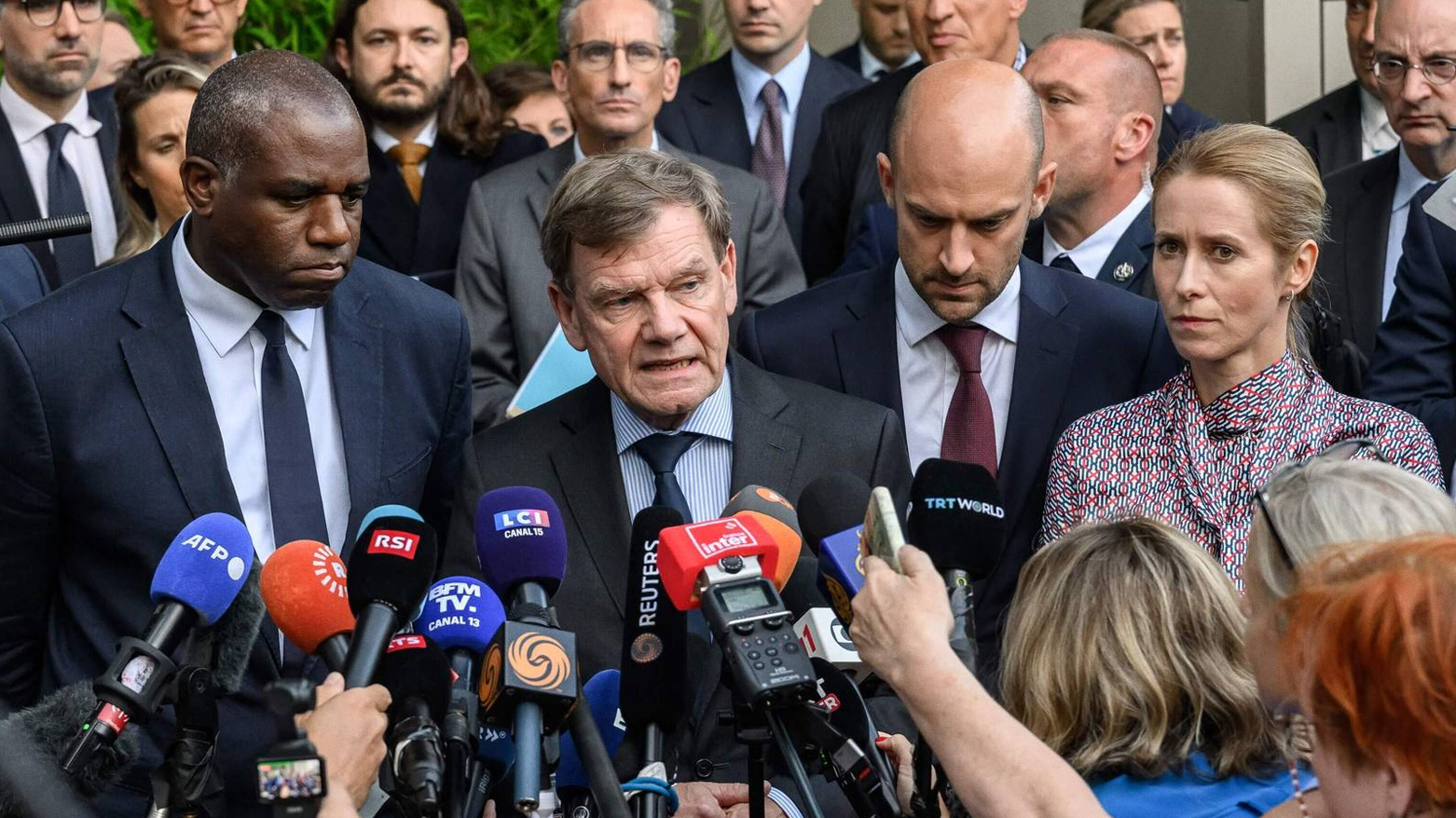European Powers Threaten 'Snapback' Sanctions on Iran
The E3 (France, Germany, UK) told the UN it will trigger "snapback" sanctions on Iran if it doesn't resume nuclear talks, the Financial Times reports. Tehran rejected the move, calling it without legal or moral grounds and threatening to end talks with the European powers.

ERBIL (Kurdistan24) – The major European powers of France, Germany, and the United Kingdom have officially informed the United Nations that they are prepared to trigger the "snapback" mechanism to reimpose international sanctions on Iran unless Tehran resumes negotiations regarding its nuclear program, according to a report by the Financial Times.
In a letter sent to the UN on Tuesday, the foreign ministers of the three nations, known collectively as the E3, raised the possibility of activating the sanctions mechanism if Iran fails to engage in a diplomatic solution. The Financial Times, which obtained a copy of the letter, reported that it was signed by French Foreign Minister Jean-Noël Barrot, German Foreign Minister Johann Wadephul, and UK Foreign Minister David Lammy. The communication was addressed to UN Secretary-General António Guterres and the UN Security Council.
"We have made it clear that if Iran is not willing to reach a diplomatic solution before the end of August 2025, or does not seize the opportunity of an extension, E3 are prepared to trigger the snapback mechanism," the ministers stated in the letter. This development comes two months after US and Israeli strikes on nuclear sites within Iran, the Financial Times noted.
The 2015 Iran nuclear deal, from which the United States withdrew in 2018 under the Trump administration, had placed significant limits on Tehran's nuclear activities in exchange for sanctions relief. According to the terms of the agreement, which still technically stands with the remaining parties, UN sanctions are scheduled to expire on October 18 unless one of those parties—the UK, Germany, France, Russia, or China—initiates the "snapback" process.
The Financial Times report detailed that during talks in Turkey last month, the E3 offered to extend the deadline if Tehran agreed to restart negotiations with the US and resume cooperation with the International Atomic Energy Agency (IAEA) before September. One western diplomat described these talks to the financial newspaper as "difficult." In their Tuesday letter, the E3 ministers noted that their offer of an extension "remained unanswered by Iran." They argued that a "limited extension" would provide more time for diplomacy while preserving the ability to reimpose sanctions to prevent nuclear proliferation.
Following the July meeting in Istanbul, Iran's Foreign Minister, Abbas Araghchi, told the Financial Times that the E3 lacked "legal or moral grounds" to trigger the snapback. He warned that such a move would lead Iran to exclude the European powers from any future nuclear negotiations. Araghchi accused the E3 of failing to honor their own commitments under the deal and said the snapback mechanism was "not that important anymore." He added, "With the Europeans, there is no reason right now to negotiate because they cannot lift sanctions, they cannot do anything. If they do snapback, that means that this is the end of the road for them."
In their letter, the E3 ministers countered this position, stating they were "clearly and unambiguously" legally justified in their stance because Tehran has "wilfully" departed from its commitments under the deal since 2019. The Iranian mission to the UN did not immediately provide a comment on the letter when contacted by the Financial Times.
The newspaper also reported that Iran's stance hardened following the recent Israeli assault, which occurred just 48 hours before a sixth round of indirect talks with the US was scheduled. Araghchi has previously stated that Iran seeks assurances from the US against future attacks and "confidence-building measures," including compensation for war damages, as conditions for talks. Iran announced in June it was suspending cooperation with the IAEA, and while a senior agency official met with Iranian officials in Tehran on Monday, the UN nuclear watchdog has not commented on the visit.